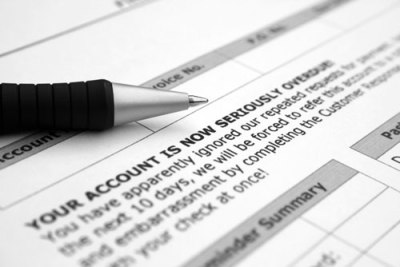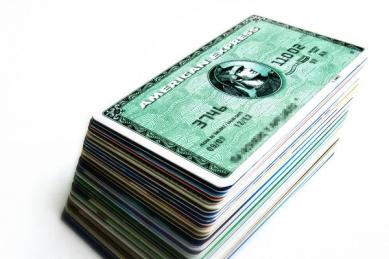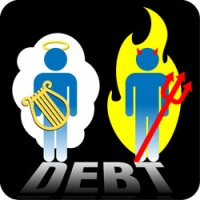The Freedom of a Debt-Free Life
For some people, living a debt-free life is just a dream, but for others, it’s a reality.
It takes commitment, self-control, and discipline to move from a life full of debts to one free of them. Although the process of becoming debt-free may not be luxurious, its end results are worth all the pain and sacrifice it may require.
Debt-free individuals experience financial freedom that allows them to live life more fully, since they do not have to be held back or stressed by burdensome debts. This is definitely a nice place to be at, and all it requires is personal commitment and determination. (See also: 6 False Assumptions About Debt-Free Living)
Why Debt Is Bad for You
One of the biggest problems with debts, especially large ones, is that they prohibit you from spending your earned money the way you want to. For example, your may want to save money for retirement or invest to secure your children’s future. However, your obligations to pay back your mortgage, a personal loan, or any other loan may hamper your efforts to reach these life goals.
When you accumulate many debts and are unable to pay them, it can also greatly affect your credit rating. Such a situation may occur due to late payments or defaulting on your monthly obligations. In addition, you may also have to pay hefty fees and penalties, which can further destabilize your financial status.
Getting Rid of Debt
When your money is unable to work to your advantage because of debts, it means you need to take the necessary action to eradicate the debts. Failure to address the issue will only slow your efforts towards achieving your goals.
Creating a budget is one of the simplest, yet most effective means of getting out of debt. Cut down unnecessary expenses in order to create a surplus in your finances. Direct the extra savings towards loan repayment. Remember that sacrifice is necessary when trying to get rid of debt. Once you have the budget in place, stick to it to the best of your ability and strive to make your loan repayments in time every month. In time, this budget should help you pay back your debt and meet all other financial obligations while giving you a clearer picture of how you use your money.
Benefits of Living a Debt Free Life
A debt free life means more money. Since you will have less monthly expenses, your cash flow will definitely increase.
More cash flow will enable you to have greater financial freedom. You might even be able to go on that vacation you have always desired or comfortably pay for your child’s tuition in a good school.
Not having to deal with debt will also allow you to invest your money for greater returns. You will therefore be able to generate more wealth and increase your financial status. You can also effectively fund your retirement to secure your future.
What are your reasons for getting out of debt?
Source
Does ‘good’ debt really exist?
Some experts say the recession has changed how debt should be viewed
By Marcia Frellick
Does “good” debt exist anymore? Financial experts differ, but many say that in today’s economy, it’s time to reconsider how we look at some common types of debt.
Traditional thinking separates debt into “good” and “bad.” Mortgages and student loans have been considered good debt because they have fairly low interest rates and hold the promise of a substantial long-term payoff. Auto loans and credit card debt usually rate a bad debt label.
But with unemployment hovering around 9 percent, housing prices falling nationwide and the average cost for a four-year private education soaring to an average of just more than $37,000 a year, according to the College Board, does good debt really exist anymore?
Noted personal finance author David Bach says no. The recession, he says, taught us that “all debt is bad if you can’t pay it off.”
“With many Americans today, almost 30 to 50 percent of their paycheck is going just to interest payments,” says Bach, whose latest book is “Debt Free For Life.” “Often it’s more than that. There’s been a real awakening that debt is bad.”
Others say good debt still exists, that buying a house is still a sound investment over the long haul, and borrowing for a college education is a good risk — if you keep borrowing down and study for a profession that can pay it off.
Here are some ways the debate shakes out:
Cars and credit cards
In terms of bad debt, financial experts agree that a large amount of auto loan debt is hard to justify. If you have to have a car to get a job, then get a cheap car, but borrow as little as possible. Borrowing money at high interest to pay for a depreciating asset just doesn’t make financial sense, they say. But there is more debate on credit card debt.
Jordan Goodman, author of “Master Your Debt,” warns against it. “If you’re paying 18 or 25 or 29 percent, it’s hard to imagine what you’d invest in that would pay you more than 29 percent reliably,” he says. “And, of course, it’s not (tax) deductible.”
But Lita Epstein, author of “The Complete Idiot’s Guide to Improving Your Credit Score,” says credit card debt isn’t all bad if it helps you establish a solid credit history that will help you with big purchases later: “Generally, you get your best credit score when you use 10 to 20 percent of your credit limit,” she says. “That shows any creditor who’s considering you that you know how to manage your credit wisely, you know how to pay your bills on time and you’re not going to get yourself in over your head.”
Robert Pagliarini, president of Pacifica Wealth Advisors in Los Angeles, says credit card debt is good if it will make you money. Period. He gave an example of buying a piano on credit so that you may give piano lessons.
“Why wait four years to save up and buy the piano, when you can buy it on credit now and make some money? This is what businesses do. They borrow money … so they can invest it into research, into assets so they can make more money. That’s what individuals need to do.”
Student loans: Good debt or bad debt?
Student loans are good debt, even as costs escalate, if you can expect to make a salary when you graduate that will allow you to pay off the debt within a few years, says Carol Roth, business strategist and author of “The Entrepreneur Equation.” In today’s economy, that may mean only taking on the debt only if you are entering a high-paying field or finding a less expensive college that will make the math work, she says.
You also have to consider that a college education pays off in other ways, she says. “There’s a value to having an education, to learn and to be a well-rounded person but only you can assign what that value is, based on your own circumstances.”
Personal finance columnist and author Liz Weston says there’s a rough dividing line between good student loan debt and bad: “Don’t borrow more than you can make in the first year of your career,” she says.
Pagliarini says student loans are still a good bet financially, even in a time of high unemployment.
“The research shows that the more education you get, the more you’re going to make long term,” he says.
He notes the national unemployment rate is an average and doesn’t fully illustrate the difference in unemployment among different education levels. “When you look at the people with bachelor’s degrees and above, that number just about drops in half.” In fact, Bureau of Labor Statistics numbers for February 2011 show unemployment rates for people with a high school diploma and no college to be 9.5 percent; it’s 4.3 percent for people with bachelor’s degrees and above.
Goodman says he agrees that on average people with college educations make more than people without. But the risk for making that choice has gotten too high, he says.
“People are taking on huge debt and, in the case of student loans, they’re not forgivable even in bankruptcy. The two debts you can’t get rid of are taxes and student loans.”
That debt burden is exactly what concerns Thomas Alexander, Finance Department chair at Northwood University in Midland, Mich. He says paying for a college education with student loans is no longer a good risk unless you’re entering high-paying fields, such as medicine, engineering or accounting.
“If someone is getting a degree in sociology or history — the chances of landing anything that would give them a high return is pretty small,” he says.
He says college is not for everyone and the better payoff may be skipping college and going into a trade.
“If you take a student who does not go to college and becomes a plumber or electrician — those guys are going to make more money than 75 percent of the college graduates, but we’ve made the feeling in this country that that is beneath them.”
Mortgages vs. renting
Goodman says taking on a mortgage is not a way to build wealth as it has been in the past.
“Home prices are falling — probably will continue to fall — and 25 percent of the population is underwater (the house is worth less than the amount of the loan). Home deductions [for interest] are overrated. You get a deduction at your tax bracket, so if your tax bracket is 25 percent, you’re still paying 75 cents on the dollar. If you’re not being bailed out by home-price appreciation, this may not be a good deal.”
Roth says it’s all about the math. She gives an example of buying a $275,000 home purchased with 25 percent down and taking out a 30-year mortgage at 4.5 percent. It will cost you $68,750 today to buy that home (that’s the 25 percent down), and you will pay out more than $376,000 over 30 years. Even if the home doesn’t appreciate in value, you will have an asset worth $275,000 at the end of 30 years. Rent at $1,500 a month over 30 years would be $540,000 and that would be without inevitable rent increases. There would also be no asset at the end.
That makes the beginnings of a case for why a mortgage is a good idea over the long haul, she says. “But you also have to ask yourself some questions,” she says, “such as what are you doing with the difference in money you spend on the mortgage (only $1,045 vs. $1,500 in rent)? That money may also be able to be invested. Do you have property taxes? That creates more costs. Do you have assessments? How much is maintenance on your home? Is homeowner’s insurance more than renter’s insurance?”
Answering those questions will help you make up your own mind about what qualifies as good debt.
Regardless of where financial experts stand on what’s good debt and bad debt, all agree working to pay it off as quickly as possible is a good idea.
“One thing that never backfires is paying down your debt,” Bach says. “It is the safest, simplest investment you can make.”



